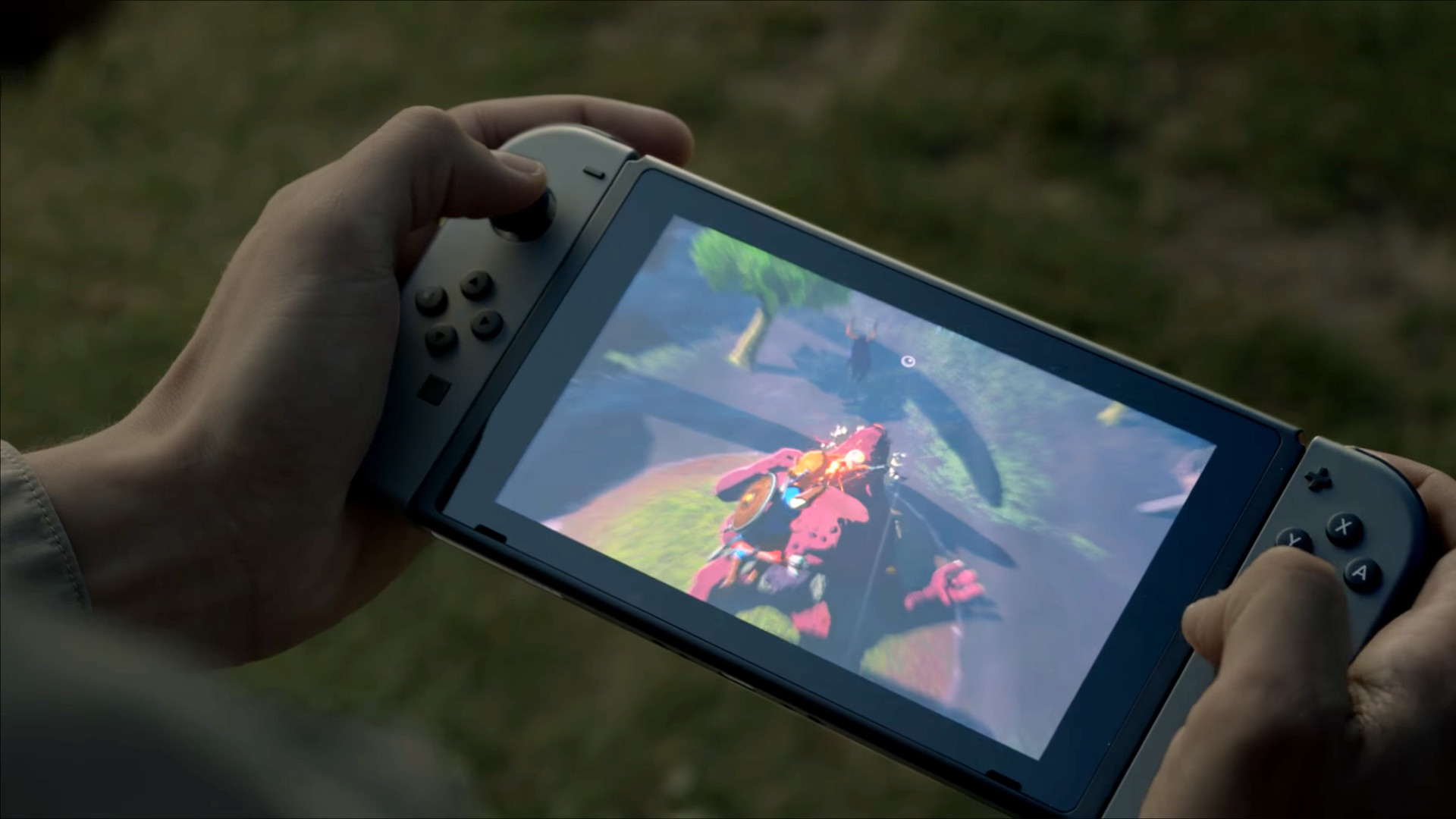
The Nintendo Switch won't have another major public showing until January 12, but if a new report from Digital Foundry is correct, we already know some big details. Key among them: the Switch will run faster while docked vs undocked, and overall the system runs at a much lower speed than even many conservative estimates.
The report in question is regarding the Switch's CPU and GPU clock speeds. If you appreciate talk of 16 nanometer (nm) FinFET processors vs 21nm processors and CUDA cores, I highly recommend checking it out. But if you want the most important pieces pulled out, with the jargon broken down into something a bit more digestable, that's what I'm gonna do for you.
You may recall that we'd already heard from a VentureBeat report that the Switch is using a custom Tegra X1 chip. An off-the-shelf X1 runs at approximately 2GHz (2,000MHz), while according to Digital Foundry, the Nintendo Switch's CPU runs at a constant speed of 1,020MHz whether the system is docked or undocked. The Switch's CPU then, is about half as fast as a standard X1.
Don't let that discourage you, though. Keep in mind that a standard X1 is meant to power things like smartphones and tablets, which have to handle many more complicated tasks. The Nintendo Switch, by comparison, only needs to do one thing well: play video games. And for more insight into that, we need to look at the GPU.
At first glance, at least from a pure numbers perspective, things look even more dire here. We've made comparisons between the Nintendo Switch and the Nvidia Shield before, and for good reason; they're both portable gaming-oriented systems, powered by Nvidia tech, with the X1 at the heart of their designs. But where the Shield's GPU reaches speeds of 1GHz, the Switch's GPU caps at 768MHz - and in portable mode, its capabilities are reduced by 60%, down to 307.2MHz.
Take away the big numbers and what does that mean? This won't be like holding a portable Xbox One or PS4, and a docked Nintendo Switch has 2.5 times the graphical power of a Nintendo Switch held in someone's hands. This makes sense - after all, the Switch isn't going to need the same amount of oomph when it's outputting to its own 720p screen as opposed to your massive television. And lower power consumption means less heat, and less battery drain.
Nintendo has stated that the dock does not provide any extra processing to the Switch, and that's still technically true - the dock only provides electrical power, not graphical power. It's the system itself that switches (ha) from a high-power mode when docked to a low-power mode when taken on the go.
Weekly digests, tales from the communities you love, and more
These numbers are lower than a lot of us would have liked - myself included - but keep in mind that speed is not the full picture. A Ferrari and Prius can both go 60 miles per hour, but one of these is going to be way more efficient in how it burns gas. In the same way, a custom Tegra X1-powered Switch (even running at slower speeds than an Nvidia Shield) should still out-perform a Wii U in terms of performance vs speed.
Just don't buy a Switch expecting to get games that will look as good as they do on the competition. Think of it this way: people flocked to the Wii because it was easy to use and centered itself around motion controls, not because of how the games looked. So too should people look at the Switch for its nature as an all-in-one console, not its graphical prowess (or lack thereof).
We still don't have the full picture on the Switch's capabilities, but it's clear that those who were hoping for a return to the days when Sony, Microsoft, and Nintendo were more or less on equal footing are bound to be a bit disappointed. Those looking for a device with a long battery life that doesn't get hot in your hands and can seamlessly transition between serving as a home console and a handheld one, however, could end up pretty happy.
Seen something newsworthy? Tell us!
Sam is a former News Editor here at GamesRadar. His expert words have appeared on many of the web's well-known gaming sites, including Joystiq, Penny Arcade, Destructoid, and G4 Media, among others. Sam has a serious soft spot for MOBAs, MMOs, and emo music. Forever a farm boy, forever a '90s kid.



